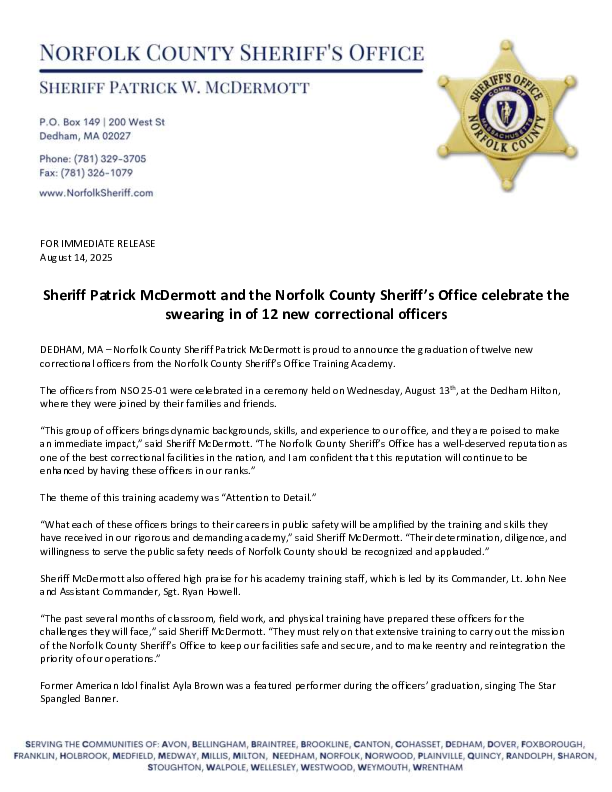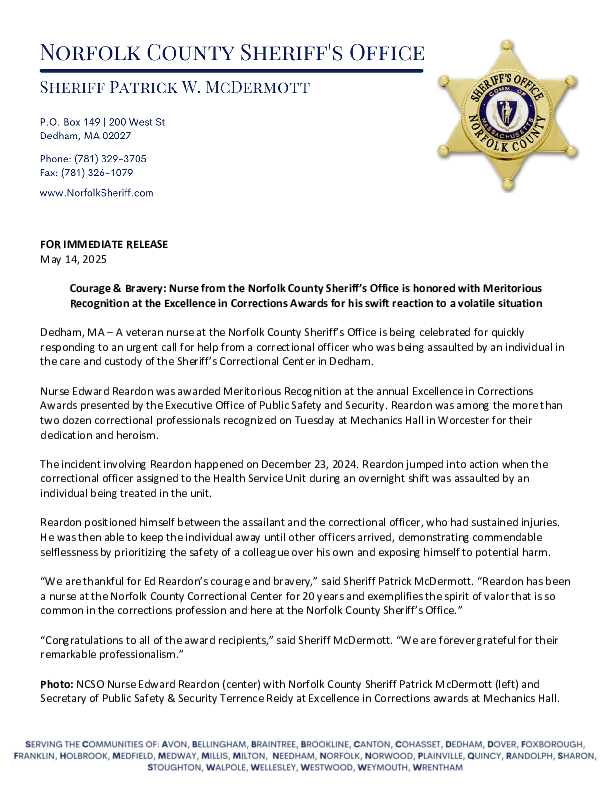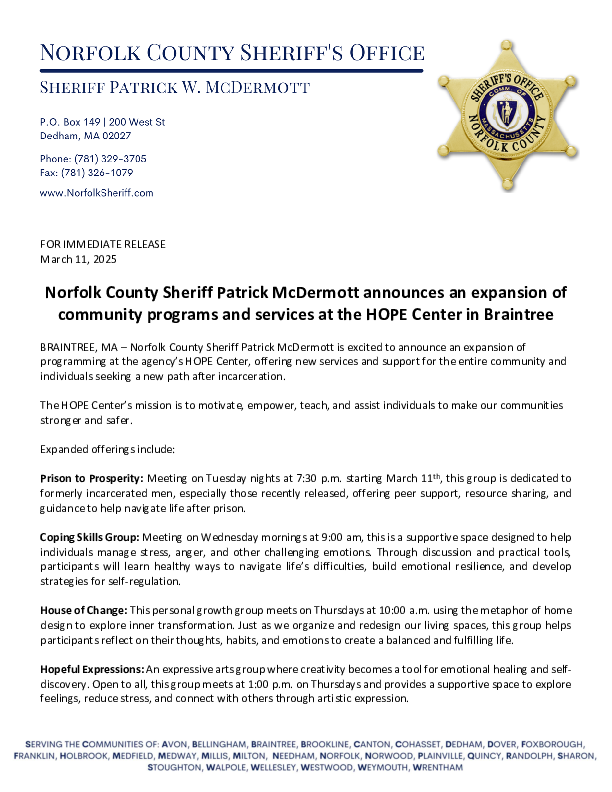

BAIL
Bails are normally conducted between the hours of 4:30 pm and 9:30 pm on weekdays and between 12:00 pm and 9:30 pm on weekends and holidays. All bail hours are dependent upon the availability of the Bail Commissioner.
If a person wishes to bail an offender, that person must provide the Lobby Officer with:
It is recommended that prior to coming to the facility, the person posting the bail calls the facility to ensure that the offender is bailable and does not have any other warrants or detainers from other courts. We also want to ensure that the individual posting the bail is aware of the proper bail amount (s) and Bail Commissioner fee. Any exceptions to these bail guidelines are at the sole discretion of the Bail Commissioner.
The entire process may take about two hours. Although we try to make this process as quick as possible, persons posting bail should be prepared to wait as delays can occur that are beyond our control.
PAROLE
Effective June 16, 2025, all parole hearings at the Houses of Correction will be conducted virtually (using video conferencing) rather than in person.
This change is being made to increase efficiency, ensure timeliness, streamline the process, and ensure consistency of hearings across all Houses of Correction.
The hearings will still be done with someone from the Parole staff physically present, and you will still have the opportunity to present yourself, share your story, and participate fully in your hearing. Nothing about the process is changing, only the setting of the hearing.
Support will be available to help you prepare for the transitions, including guidance on how to present yourself effectively in the virtual environment.
If you have a disability and need assistance or require the assistance of an interpreter, please notify parole staff to make these requests.
Parole staff are available for assistance; please just ask.
Preparing For Your Virtual Parole Hearing: A Guide for Incarcerated Individuals
As you prepare for your parole hearing, we have developed a guide to support you. This guide is designed to make the process as clear and manageable as possible, offering practical suggestions and reminders to help prepare you for the best presentation. We encourage you to take your time with each part of the guide and reach out to institutional staff with questions.
Parole Process:
• Your parole hearing will be held virtually, meaning the Parole Board Members will be appearing on a computer monitor. However, the Parole staff assigned to your facility will be physically present during the hearing to assist you.
• Even though the Board Members will be on screen, the structure of the hearing will remain the same.
• During the parole hearing, you will be asked questions by the Parole Board Members, and you will also have a chance to tell your story, explain your history, and ask questions.
In-person Environment vs. Virtual Environment:
• While the virtual environment may feel different from in-person settings, it doesn’t make your experience any less important.
• Authenticity: Your voice is powerful. Be yourself, authenticity comes from you, not the setting.
• Be prepared: With preparation and confidence, you can present yourself sincerely and effectively, even through a computer monitor.
• Realize that a Board Member may often be reviewing records on your case or taking notes during a hearing. It is not a sign that they are not paying attention; it is actually the opposite.
Just because the hearing is virtual does not mean it is any less important:
• Even though it is on the computer, this is your hearing opportunity: Treat the hearing with full seriousness like you would an in-person hearing.
• Eye Contact: Look at the camera to demonstrate engagement and connection.
• Posture: Sit up straight to show respect and readiness.
• Politeness: Be courteous and use respectful language. Respond clearly, calmly, and kindly.
• Respect: Listen before responding, never interrupt a Board Member.
• Presence: Behavior and attitude are just as visible in the virtual environment.
Asking for Help or Assistance:
• Remember to talk to Parole staff if you think that the hearing might be difficult for you due to a disability. You can ask for reasonable accommodations for your hearing.
• Remember to ask for an interpreter if you have language needs.
• Technology can be difficult for everyone. You’re not alone, and it’s OK if you’re confused and need to ask for help.
• Speak Up: If something isn’t clear, ask before, during, or after the hearing.
• It’s OK to Ask: Needing support doesn’t reflect negativity, it shows you’re invested.
• You Deserve Clarity: Make sure you understand what is being said.
• Be Proactive: The sooner you ask, the better your experience will be.
The Hearing Process isn’t Perfect Especially in a Virtual Environment:
• It’s OK if the process or technology isn’t perfect. Hiccups happen, and they will not count against you
• Speak Up: Can’t hear? Need something repeated? Don’t hesitate to ask. The Parole Board Members will also make sure that if they can hear you and if something interrupts the hearing, you will have the opportunity to repeat yourself.
• Be Comfortable: Ask to have the camera adjusted or request other small adjustments.




























